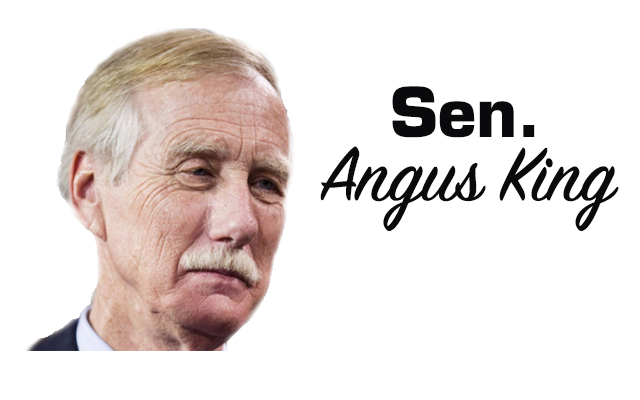From 1977 to 1980, hundreds of U.S. service members and civilians were deployed to the Marshall Islands in the Pacific Ocean where the military had conducted nuclear weapons tests from 1956 to 1958 as the threat of the Soviet Union came to the fore.
These Americans – including several from Maine – were sent to the islands to clean up the nuclear tests sites, and in the years and decades since, many have suffered from high rates of cancers after having been exposed to radiation and nuclear waste. But today, these veterans are unable to receive the same treatments and presumption of service-related disability that other “radiation-exposed veterans” receive. I think that’s wrong.
That’s why I’ve joined a bipartisan group of my colleagues in the Senate to introduce The Mark Takai Atomic Veterans Healthcare Parity Act. The bill would tackle this issue by extending key benefits from the Department of Veterans Affairs (VA) to those who helped clean up the Marshall Islands, which remains partly uninhabitable due to high levels of radiation.
One of these “atomic veterans” is Mr. Paul Laird of Otisfield, and it is through his work and the work of his fellow servicemembers that this issue was brought to my attention. Paul was a 20-year old bulldozer operator for the U.S. Army’s 84th Engineer Battalion at the time and scraped topsoil without being provided the proper safety equipment. Since then, he has fought cancer on three-separate occasions after his work in cleaning up the nuclear fallout on Enewetak Atoll, one of the islands in the in the Marshall Islands. Paul has repeatedly applied for veterans’ benefits to help cover the costs of his treatment, but has been denied by the VA, which argues that his cancers are not linked to his work on the island.
I had the honor to meet Paul in May and presented him with the Humanitarian Service Medal to recognize his work in 1977 cleaning up the Enewetak Atoll. Mr. Laird never received his recognition, which my office helped secure for him, and it was truly humbling to be able to present him with the medal. The Humanitarian Service Medal honors personnel of the Armed Forces who have distinguished themselves by meritorious direct participation in a significant military act or operation of a humanitarian nature, or who have rendered a service to mankind. Paul certainly fits that description in his service on behalf of our country.
It’s a solemn promise we make to our veterans: you fought for us and now we will fight for you. But it’s too often a promise that goes unfilled, and it is incumbent upon us to right that wrong and ensure that every veteran is given both the recognition and the care that they earned and are due. For Paul Laird, we have taken a step forward in fulfilling that promise, but there is more to be done – both for him and for veterans across Maine and America. On behalf of a grateful nation, I thank Paul for his service to our country, and I pledge to continue to fight for him and all Maine veterans to ensure that they receive the benefits they deserve.








